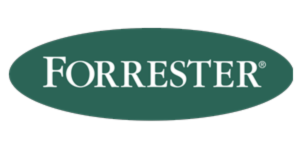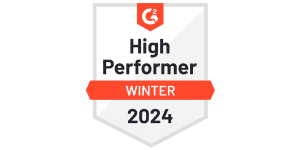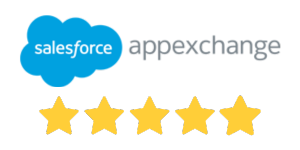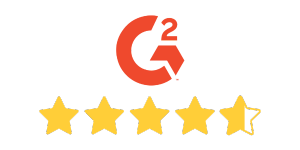11 May

The B2B wholesale industry is a strong force in advancing global commerce. The wholesale sector in the United States, which only has about 750,000 organizations, produced $8.3 trillion in annual sales in 2018, with a projected 1.9 percent rise from 2018 to 2023. With only a few numbers in mind, it’s clear that owning a wholesale company can be a financially rewarding venture for any entrepreneur! In this article, we’ll break down the what, why, and how of this prosperous opportunity and include some helpful hints for selecting a high-performing and lead-generating B2B wholesale platform among hundreds.
What is B2B Wholesale?
B2B wholesale, in general, is a subset of the broader B2B market, a form of commercial online transaction between companies, often involving a producer and wholesaler or a wholesaler and a retailer. To be more precise, wholesalers market goods in bulk to other businesses but single items to consumers. The buying company either uses the goods for its use or manufacturing or resells them in smaller amounts to individual consumers in this supply chain. For now, the meaning seems clear; nevertheless, it is one word that should be avoided. We sometimes hear the phrase “big-box store” about wholesale. Because of the name’s combination, we should consider it a retailer. This type of wholesale business mainly aims to buy large quantities of goods and sell them to businesses via long-term relationships with retail loyalty programs.
Benefits of B2B Wholesale
B2B wholesale companies can achieve higher average order values (AOV) and order volumes over time because they move vast amounts of goods through long-term contract structures. Furthermore, the custom-life time value increases due to the essence of the long-term contract. The primary purpose of wholesale is to sell goods in bulk to consumers without going through a third party. As a result, simply reselling your products to retail partners, who then resell to their customers, will help you build brand awareness among new customers. When the brand is well-known, it opens the door to more and better growth opportunities. Another advantage of business-to-business wholesaling is that wholesalers receive a fixed profit margin, which is typically about 3-10 percent. They don’t have to be concerned about profit margins in this sector because the profit generated by selling certain products to consumers can be calculated precisely.
B2B Wholesale and Oversupply
Wholesalers serve as a catalyst in the supply chain, balancing supply and demand fluctuations between manufacturers and retailers. Manufacturers must sell their products to maintain sufficient working capital, while retailers may need more funds to purchase goods in bulk. As a result, wholesalers serve as a link between producers and retailers, bridging the gap. Even further, when it comes to manufacturing, reselling, and consumption, B2B retailers rely heavily on their wholesale suppliers.
Common B2B Wholesale Challenges
Navigating the complex landscape of B2B wholesale requires a strategic approach to overcome inherent challenges. These are:
- Supply Chain Disruptions: Navigating global market complexities is crucial. Minor disruptions can lead to significant delays, impacting customer satisfaction and business reputation. Effective communication and robust contingency planning are key.
- Technological Adaptation: Staying ahead in a tech-driven environment is essential. This involves integrating advanced inventory, CRM, and data analytics systems and continuously updating and training staff, which can be resource-intensive.
- Pricing Pressures: Maintaining competitive pricing while ensuring profitability is a delicate balance. This challenge requires optimizing operational efficiencies and negotiating better terms with suppliers.
- Evolving Customer Expectations: Businesses now expect a consumer-like experience, demanding higher service levels, personalized interactions, and faster delivery times. Meeting these expectations necessitates a customer-centric approach and a deep understanding of client needs.
- Regulatory Compliance: Navigating international trade laws, tax regulations, and environmental standards is critical. Diligence and expert advice are often needed to ensure compliance and avoid costly penalties.
- International Rivalry and Internet Exploration: The combination of international competition and Internet exploration puts additional downward pressure on prices, affecting low-margin wholesalers the most. Yet, by expanding into new markets and controlling costs, wholesalers can offset revenue losses and increase overall sales and profits.
Each challenge requires a strategic and proactive approach to ensure success in the dynamic wholesale sector.
Tips for a Successful B2B Wholesale Business
As the landscape shifts with digital transformation and global market influences, wholesalers must adapt and innovate to stay ahead. Here are some essential tips for running a successful B2B wholesale business:
- Embrace Digital Transformation: Invest in a strong online presence and e-commerce platform.
- Efficient Supply Chain Management: Diversify suppliers and use inventory management software for resilience.
- Competitive Pricing Strategy: Offer competitive prices while optimizing operations to maintain profitability.
- Focus on Customer Experience: Provide personalized services and ensure timely delivery.
- Adapt to Market Trends: Stay informed and flexible to changing industry trends and customer preferences.
- Build Strong Relationships: Foster trust and reliability with suppliers and customers for long-term partnerships.
- Leverage Data Analytics: Use data to inform decision-making and improve strategies.
- Regulatory Compliance: Stay updated and compliant with industry laws and regulations.
- Expand Internationally: Explore new markets carefully, understanding local dynamics.
- Continuous Improvement: Regularly review and innovate business processes and offerings.
By implementing these strategies, wholesale businesses can navigate challenges effectively and position themselves for long-term success in a competitive and evolving marketplace.
Consolidation of Retail
The number of wholesalers serving supermarkets, home electronics, office supplies, and do-it-yourself supplies has decreased due to the rise of national retailers. Wholesalers can be divided into two groups: those that will continue to expand and serve a diverse client base and those that will concentrate on narrow markets and flourish in those niches.
If you plan to start a B2B eCommerce wholesale company, you’ll likely face challenges such as deciding on a platform. There are several choices to consider, but first, you should be aware of the essential features a B2B website should have. Usability may be the most important thing to look for in a B2B platform. It’s difficult for the administrator to handle the website’s activities because of advanced features that cater to the complexities of B2B transactions. As a result, it’s vital to deliver these functions while keeping them simple to use, particularly when changing the status quote and updating customers’ information such as email or phone number automatically.
B2B Wholesale and Business
Even though B2B wholesale accounts for a small percentage of the market, its value over time is important. Doing business in this field can initially seem difficult, but there is still room for growth. After reading our article, we hope you will better understand B2B wholesale and a quick overview of how to choose the best wholesale platform. If you are ready for the B2B venture but don’t know where to start, contact Apex Loyalty! Apex Loyalty offers various services for wholesalers that will get them up and running quickly. Improving your business ventures is easier with Apex Loyalty.
You can read our previous article from https://www.apexloyalty.com/5-ways-to-increase-b2b-online-sales/











